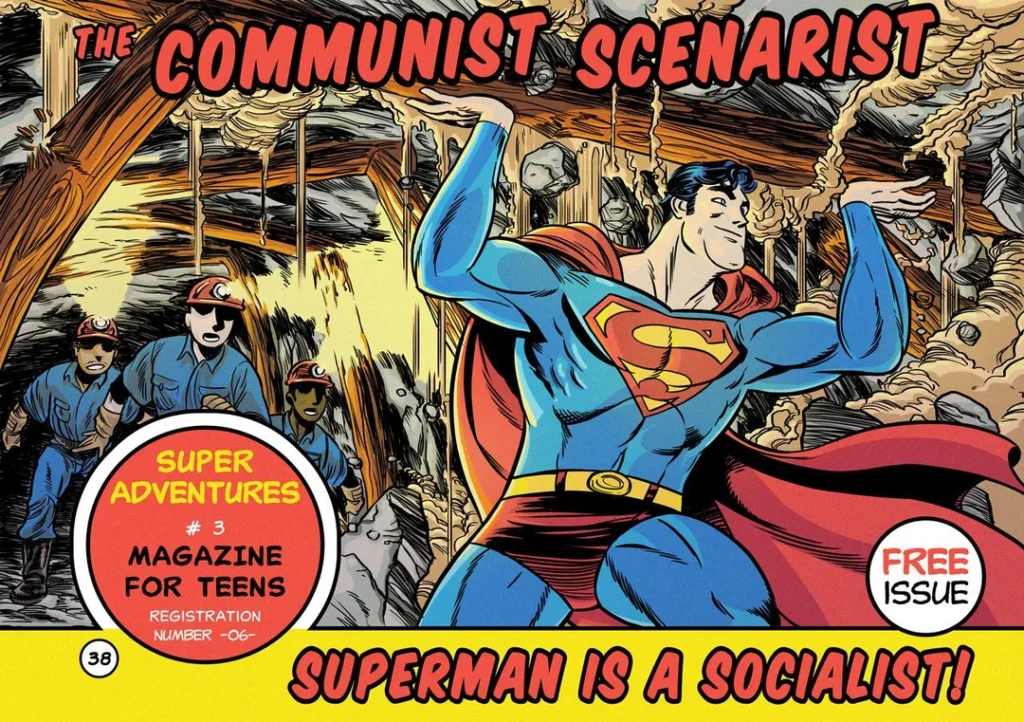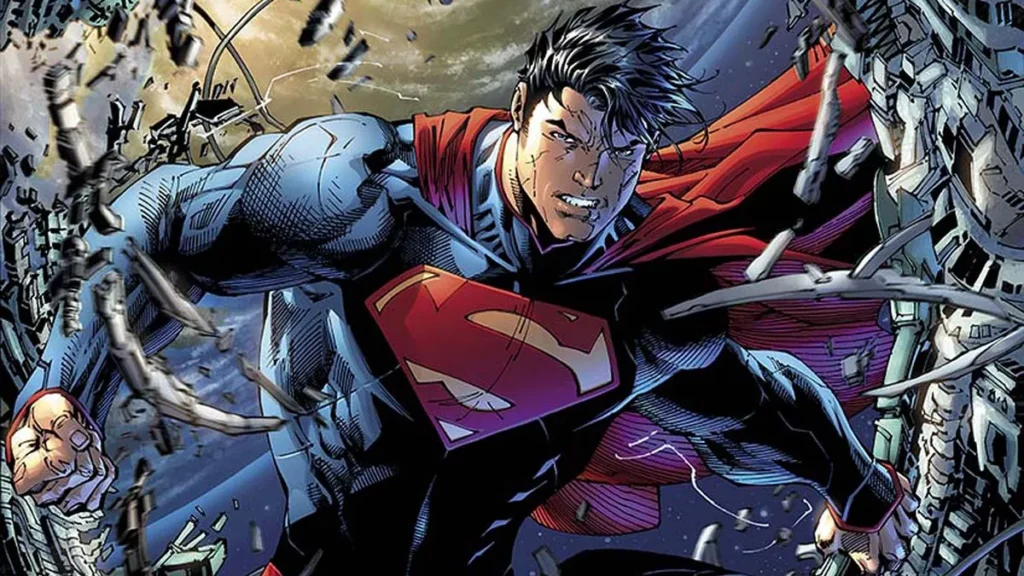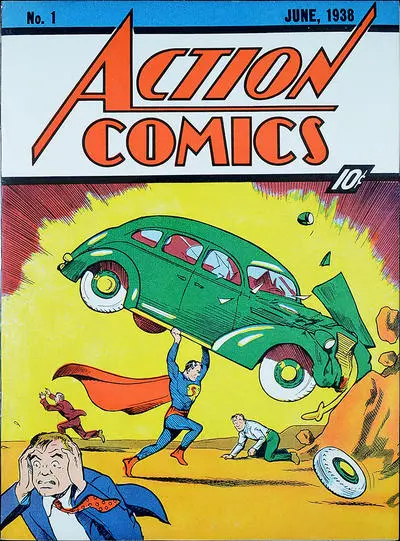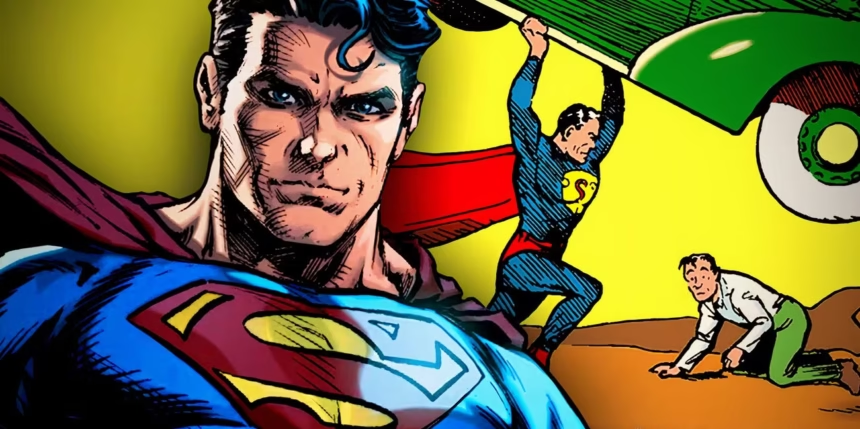Unmasking Superman’s Radical Origins: The Forgotten Rebel of 1930s Comics

When James Gunn’s new Superman film debuts in cinemas, audiences may be expecting the familiar moral paragon of truth, justice, and the American way. But Superman’s radical origins in the 1938 comic books reveal a very different hero. Created by Jerry Siegel and Joe Shuster, the earliest version of the Man of Steel was no patriotic boy scout—he was a violent, anti-authoritarian figure who fought injustice with his fists, not diplomacy. Long before he became the symbol of idealized American values, Superman was the hammer of the oppressed and a thorn in the side of the elite. These radical origins of Superman reflected the creators’ frustration with social inequality, and Superman’s radical origins continue to fascinate readers seeking the deeper, rebellious roots of superhero mythology.
From Violent Socialist to Icon: Tracing Superman’s Political Transformation
The first Superman, published in Action Comics #1, was far more radical than today’s audiences might imagine. Brimming with righteous fury, he took down slumlords, corrupt businessmen, wife-beaters, and greedy politicians. He smashed through walls, hurled abusers out of windows, and bent iron bars around the necks of the corrupt. His methods were aggressive, his sense of justice unyielding. Some historians, like comic scholar Paul S. Hirsch, even label him a “violent socialist.” This original Superman wasn’t asking politely for change—he was demanding it. Superman’s radical origins are evident in his no-nonsense, working-class attitude and his deep commitment to protecting the oppressed. Unlike the polished, patriotic hero he later became, Superman’s radical origins show a character forged in the fires of economic hardship and social unrest. These early stories underscore Superman’s radical origins as a fierce social crusader, not merely a superhero in tights.
The Political Climate Behind Superman’s Radical Origins

Siegel and Shuster, two Jewish teenagers from working-class Cleveland, created Superman at the height of the Great Depression. Raised in a time of financial despair and global instability, their superhero emerged from real-life hardship. Siegel once said that Superman was a champion of the downtrodden, a product of their own experiences with poverty and discrimination. In an era where the powerful often trampled the working class, Superman’s early stories served as a wish-fulfilling fantasy: what if the powerless could strike back?
Punching Up: How Superman’s Radical Origins Targeted Real-World Villains
Unlike most caped crusaders, Superman initially avoided battling mad scientists or alien invaders. Instead, he attacked capitalism’s failures. Superman demolished unsafe tenement housing to force the government into action. Factory owners who cut corners to boost profits at the expense of worker safety became his next targets. Then, he waged a one-man war against reckless drivers, shady used car dealers, and city officials complicit in public negligence. These weren’t fantastical foes—they were painfully real enemies to the everyday American.
Why Superman Changed
Superman’s radical edge didn’t last. As his popularity soared, so did corporate interest. DC Comics quickly realized the character’s market potential and sanitized him for mass consumption. Gone were the gritty street-level confrontations. In their place came colorful villains, romantic subplots, and more family-friendly adventures. The shift wasn’t just creative—it was political. With World War II on the horizon and American patriotism surging, Superman was molded into a flag-waving icon.
Moreover, creators Siegel and Shuster lost control of their creation. Having sold Superman’s rights for a mere $130, they watched from the sidelines as he was repackaged to suit commercial and political agendas. Their personal stories mirrored the very oppression their hero once fought against.
A Legacy Muzzled by Profit and Politics

By the 1950s, the Comics Code Authority stifled creative expression in the industry. Superman became a clean-cut father figure, battling aliens and interdimensional threats while avoiding controversial topics. The rebellious crusader who once took on slumlords was now delivering moral lessons to children. This “blandification” was driven not only by commercial interests but also by wartime patriotism and Cold War censorship. Creators and publishers were incentivized to avoid political commentary that could jeopardize sales or government approval.
The Man Behind the Myth: Jerry Siegel and Joe Shuster
The injustice done to Superman’s creators only adds to the character’s layered legacy. Despite inventing one of the most enduring cultural icons of the 20th century, Siegel and Shuster were sidelined by their publisher. Legal battles failed to win them back the rights, and they spent years struggling financially. In many ways, the real-life treatment of Siegel and Shuster underscores the early Superman’s message: that power, left unchecked, often exploits the very people who build it.
Superman as a Mirror of America
Superman’s evolution is a mirror reflecting America’s cultural tides. In times of war and prosperity, he’s been a patriotic symbol. In eras of unrest, he’s shown flashes of his former radicalism. Creators and storytellers have occasionally attempted to restore his social conscience. From tackling poverty in graphic novels to confronting political corruption in modern story arcs, there remains a glimmer of the original Man of the People in today’s Superman.
Which Superman Will We See in 2025?
With James Gunn’s reboot on the horizon, speculation is rife about which version of Superman will soar onto the big screen. Will he be the smiling symbol of hope or the social crusader challenging systemic injustice? Perhaps audiences are ready for a revival of the rebellious figure from 1938—a Superman who doesn’t just protect the status quo but questions it.
A Timeless Hero with a Forgotten Edge
Today’s mainstream image of Superman as a moral, unflappable figure has overshadowed his radical roots. Yet the early Superman—born from economic despair and cultural marginalization—remains a powerful symbol of resistance. His origin story isn’t just about escaping a doomed planet; it’s about fighting for justice on one.
In remembering this forgotten version, we rediscover not only the radical beginnings of a comic book icon but also a call to action. Superman didn’t just save lives—he shook the foundations of a broken system.




